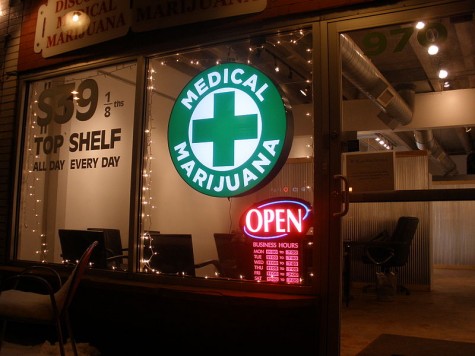Contaminants testing may be on its way for medical marijuana patients
April 22, 2015
Mold, E. coli and pesticides don’t usually come to mind when mentioning marijuana, but they have recently been the focus of unregulated medical marijuana market horror stories in Washington state.
With legislation requiring medical marijuana testing making its way through the capitol, marijuana-testing laboratories will surely see an increase in the volume of product they receive.
The history of marijuana in Washington
When Washington voters approved medical marijuana use with Initiative 692 in 1998, there were no rules governing product testing before it hit dispensary shelves.
With the 2012 passage of I-502, which introduced a recreational marijuana market to the state, strict quality assurance testing guidelines were part of the package.
After Republican Sen. Ann Rivers failed to get a bill that would reconcile both marijuana markets out to the House by the end of the 2013-14 session, she decided to try again this year by sponsoring the Cannabis Patient Protection Act (CPPA).
The CPPA would require quality assurance testing of medical marijuana, currently required for its recreational counterpart. This includes testing for moisture content, potency, foreign matter and microbes.
If the act makes it to Gov. Jay Inslee’s desk before the end of the legislative session, it will mean an influx of marijuana that needs to be tested.
Marijuana testing labs see few medical marijuana clients
Bobby Hines, co-owner and chief technical manager at Confidence Analytics, a marijuana-testing lab based in Redmond, Wash., said medical dispensaries don’t typically seek to get their products tested and, when they do, it is usually a potency profile, not a microbial one.
“I do believe that it’s needed in the medical side more than anywhere,” Hines said. “If we’re talking about patients who have conditions where mold sensitivities or suppressed immune systems are a factor, then those folks, more than anyone, should really be paying attention to the microbial tests.”
Another testing lab, True Northwest, Inc. based in Olympia, Wash., also sees few, if any, medical clients wanting to test their products.
“I have always wondered why they didn’t require microbial testing,” laboratory owner Jaime Deyman said.
The Werc Shop, a marijuana-testing lab based in Los Angeles, Calif., was recently certified by the Washington State Liquor Control Board to test recreational products.
Laboratory manager Cameron Miller said the only medical clients they currently see are the ones willing to make the best product.
“They want their customers to see that they are going the extra mile and jumping through hoops that aren’t necessarily mandatory to make the best and safest product possible,” Miller said. “The majority of the market would rather cut corners and save a little bit of extra money when given the chance.”
Confidence Analytics and The Werc Shop are both prepared for the possibility of an increase in product testing if the CPPA makes it to the governor’s desk.
Both labs would need to increase their staff, machines and motors for testing.
True Northwest, which is a small privately-owned lab, will not test more product than their lab can handle.
“If we can’t handle it, we don’t take it,” Deyman said.
A maturing medical market
“We really want customers to become a little more educated when they go into a store to buy a product,” Miller said. “They know what they want to buy, they know what flavor they want and they know exactly what they’re looking for.”
Miller would like to see the medical market in Washington mature with patients seeking products for more than their THC content.
He used an analogy to illustrate how he wanted the market to develop into a “wine-consuming market instead of a beer-chugging one.”
The CPPA bill has been passed by both the Washington House and Senate and is awaiting approval by Gov. Inslee.




D-Man • Apr 27, 2015 at 10:55 pm
There is a new I-502 lab in Spokane that says their pesticide test will be on line by June 2015. 225 + pesticides in a single test. We took some medical samples in for testing just last week. Trace Analytics Inc. next to Spokane Arena. So there are labs out there looking to make a difference for patients and rec users alike. traceanlytics.com
Muraco • Apr 24, 2015 at 9:23 am
The State is NOT chekcing its I502 product for pesticides even as the Liquor Control Board has been alwasy OK leaving the misimpression in the public’s mind. This reporter never asked the key question – is the I502 product being checked for pesticides? NO IT IS NOT> Furthermore the state I502 hash oil has acetone – that’s a solvent in it – please visit http://www.imaginary.solutions and see the actual lab result.
Dr. John • Apr 27, 2015 at 5:09 pm
100-200ppm of acetone is a concentration caused by the analysts cleaning their equipment out with acetone, a common laboratory practice for chromatography equipment. The acetone IS NOT in the hash oil. Even if it were, that’s an exposure level lower than using acetone to clean the polish off your painted nails.